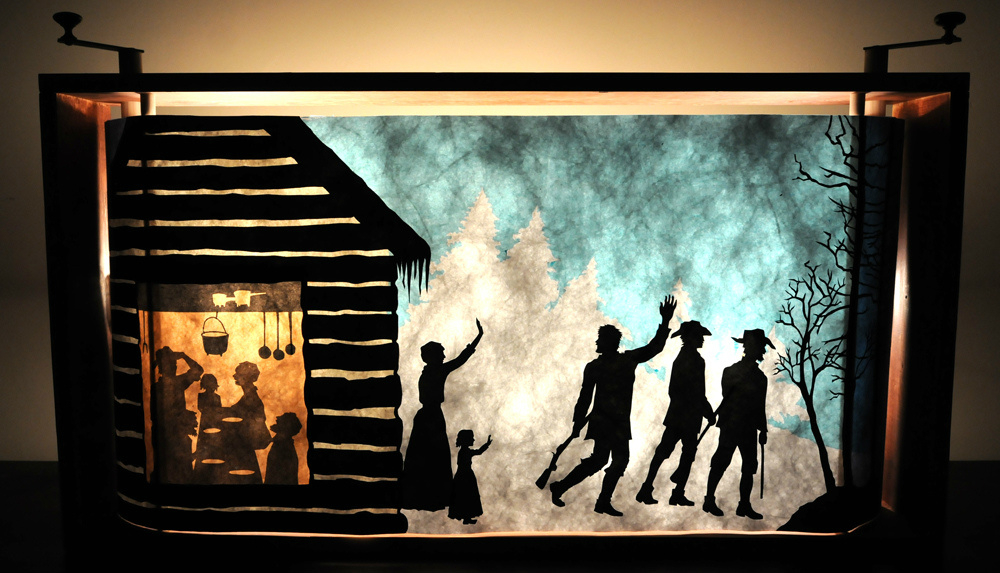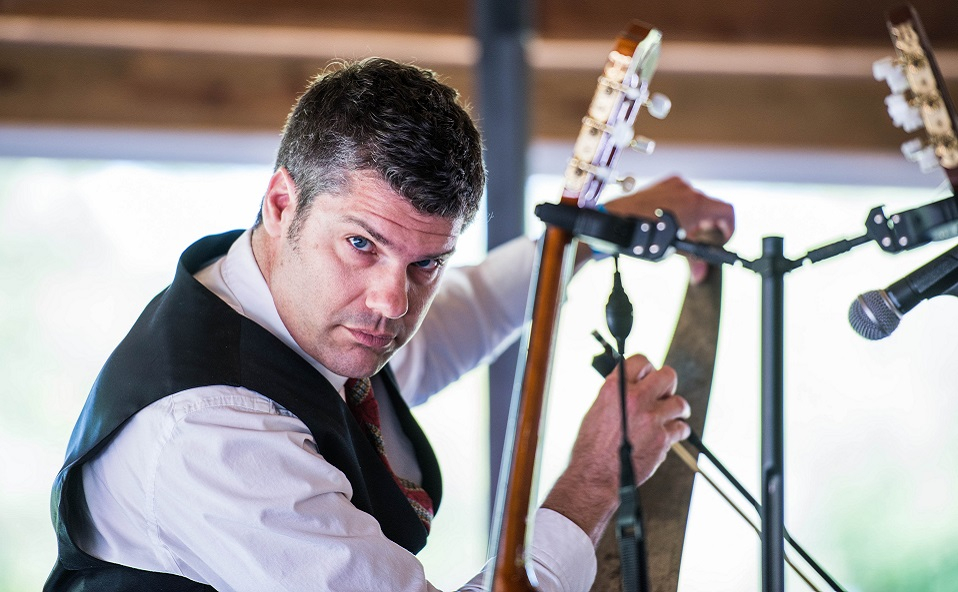Levram the Great, Colonial Conjurer, has traveled all over the world, and performed for heads of state, as well as their feet! He portrays magic from the 18th Century by using all materials, props, and costumes that would have been available at the time. Levram the Great is based on real-life American 18th Century conjurer, Jacob Meyer, otherwise known as Philadelphia. Audience members are encouraged to participate- are you ready for a stage appearance as a magician’s assistant? Two performances at the Garfield Center, 11 am and 1 pm.
What is a Crankie, you say? Katherine Fahey, an award-winning Baltimore artist, and her musician friends will perform this old storytelling art form at 11:30 am and 3 pm at the Garfield Center for the Arts. A long illustrated scroll is wound onto two spools. The spools are loaded into a box which has a viewing screen. Then the scroll is hand-cranked and accompanied by music. Fascinating storytelling for all ages.

Crankie panorama. Old Fashioned Storytelling accompanied by music, 11.30 am & 3 pm at the Garfield Center for the Arts
Your Chestertown Tea Party colonial music adventure is not complete without listening to Stephen Christoff. He brings to life the ballads and song lyrics that helped build American independence and define a nation. He will captivate families with the jaws harp, banjo, guitar, mandolin, hand whistle, the musical saw, and even the bottles. The Colonial times were filled with music and Christoff explores the fun.

Stephen Christoff. Colonial period musician. Garfield Center for the Arts at 1.30 and on the Main Stage
Ona Judge and the Spirit of Freedom. Much of our country’s African American history is unknown to most Americans: hidden, unexplored, and ignored. That history includes acts of courage during the American Revolutionary times. The story of Ona Judge, enslaved personal servant of Martha Washington, illustrates one woman’s quest for freedom. Ona Judge Staines served as personal servant to Martha Washington until she escaped from the President’s Mansion in Philadelphia and relocated to Portsmouth, New Hampshire in 1796. Judge’s escape from the President’s Mansion in Philadelphia was most likely inspired and facilitated by her exposure to free blacks in a city with fervent abolitionist spirit. On May 21, 1796, while the household was preparing to retreat to Mount Vernon for the summer, Judge prepared her escape; she simply walked out of the house while the family was eating dinner. Her motivation was clear: complete freedom from slavery. Judge had learned that she would be given to Elizabeth Parke Custis upon Martha Washington’s death. This family-oriented program sheds new light on the meaning of freedom in America. Featuring Karen Somerville solo vocals, a choir and dancers accompanied by percussion, 12:30, Garfield Center for the Arts.



Write a Letter to the Editor on this Article
We encourage readers to offer their point of view on this article by submitting the following form. Editing is sometimes necessary and is done at the discretion of the editorial staff.